Nicholas Turner is the fifth president and director of the Vera Institute of Justice and has served as such since August 2013. Under his leadership, Vera has worked to end overcriminalization and mass incarceration, focussing on redefining the delivery of public safety and investing in public health and community. He is also the president and director of Vera Action, a closely aligned nonprofit dedicated to influencing legislators to prioritize racial justice.
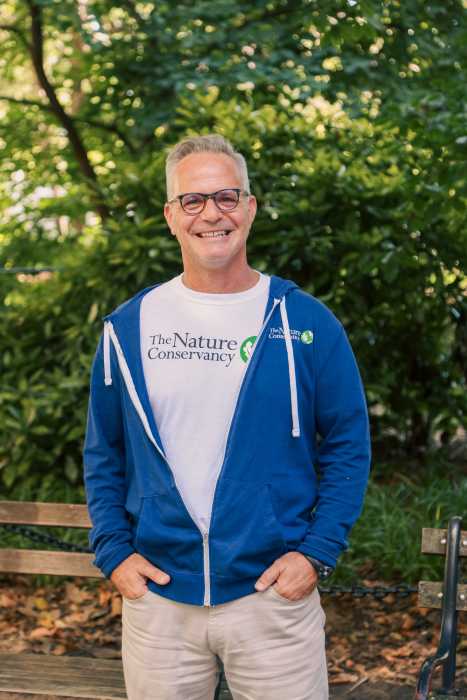
Bill Ulfelder
Executive Director, The Nature Conservancy in New York

With Bill Ulfelder’s leadership, The Nature Conservancy in New York is leading and working with partners on cutting-edge science and to advance key conservation issues, so that all of nature, including humanity, can thrive. Bill leads a statewide team that welcomes hundreds of thousands of visitors to the Conservancy’s network of over 100 preserves across New York State and promotes policies that conserve nature while strengthening our economy.
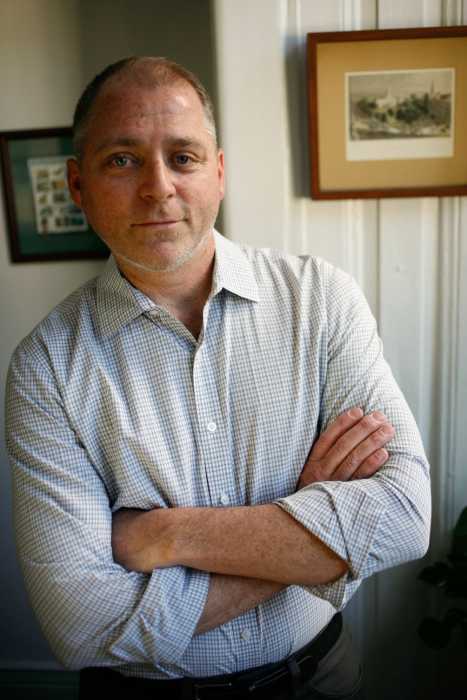
Marcel Van Ooyen
CEO and President, GrowNYC

Since joining GrowNYC in 2006, Marcel Van Ooyen has substantially expanded GrowNYC’s programs and services, establishing ways for all New Yorkers to improve their city and the environment including creating a national model for operating EBT at farmers markets, working with NYC DOHMH to create Health Bucks, launching GrowNYC’s farmstand program, and expanding GrowNYC Wholesale into a mission-driven NYS Regional Food Hub, a 60,000 sq. ft. facility in the South Bronx opening in 2024.
Was there something or someone that inspired you to pursue a career in the nonprofit sector?
Founder of Worldwatch Institute and the Earth Policy Institute, Lester Brown and his early writings about sustainable development, climate change, and the future of the earth inspired my activism and desire to participate in work to improve the environment.
What is the proudest moment of your career so far?
The groundbreaking of GrowNYC’s New York State Regional Food Hub (The Hub), a mission-driven 60,000 sq. ft. food distribution hub! The Hub will be a national model for how to support regional farmers and increase food access in historically underserved communities. After years of meticulous planning and fundraising, reaching the stage of building such critical infrastructure for our regional food system was incredibly exciting.
What policy changes could be made to aid in your work within the nonprofit sector?
We need federal policy that supports small, family owned farms to the extent that we support large scale industrial farming, as well as increased incentives for nutrition benefits like SNAP/EBT, WIC, and more! This would allow us to foster a thriving farming community and increase access to fresh, nutritious food to communities that need it most, creating an equitable food system that benefits not just a few but all of us.
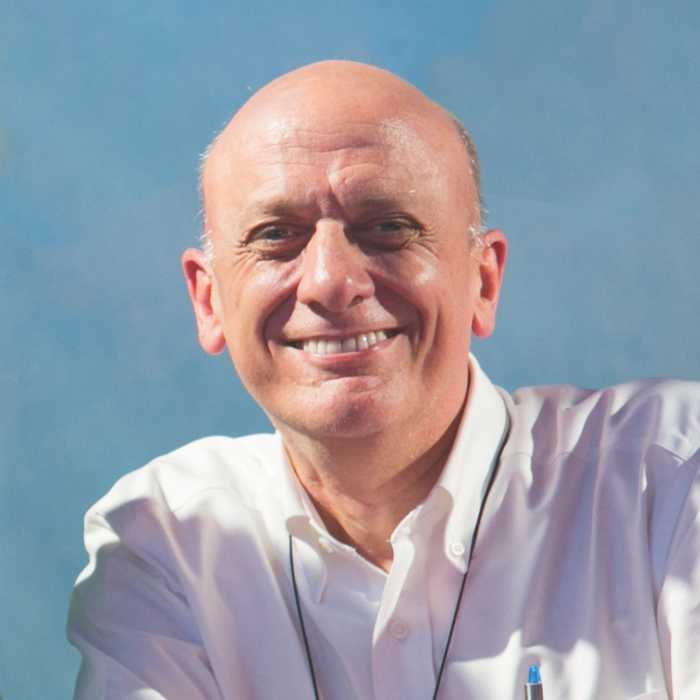
Tom Viola
Executive Director, Broadway Cares/Equity Fights AIDS

Tom Viola is the executive director of Broadway Cares/Equity Fights AIDS (BC/EFA). Founded in 1988, BC/EFA has raised over $350 million for essential services for people living with HIV/AIDS and other critical health issues nationwide. BC/EFA supports the social services of The Entertainment Community Fund (ECF). In 2023, BC/EFA awarded the ECF $7.6 million. BC/EFA awards grants to 450 social service organizations in all 50 states. In 2023, its National Grants Program awarded $9.2 million to these agencies.
Was there something or someone that inspired you to pursue a career in the nonprofit sector?
Colleen Dewhurst. The Tony Award winning actress who was president of Actors Equity, the union of actors and stage managers, led the Broadway community in the creation of Broadway Cares/Equity Fights AIDS in 1988. Even with her death in 1991, Colleen’s personal response and professional commitment to those living with HIV/AIDS became the heart from which Broadway Cares has sustained, grown and expanded its fundraising efforts and grant making outreach for over 35 years.
What is the proudest moment of your career so far?
There is no one proudest moment. But I take great pride that Broadway Cares’ work with the Broadway community and American theater has continued for more than 35 years. Broadway Cares outreach and efforts have expanded to embrace many, many more facing all varieties of health care and personal challenges beyond our original mission, while never losing the commitment to those living with and affected by AIDS.
What policy changes could be made to aid in your work within the nonprofit sector?
A sincere understanding and commitment in the halls of government – both on a local and national level – to the importance of the social services and safety net of care for those who do not equally participate in the economic success enjoyed by those at the top. A fair and equitable tax system would provide the resources to do so.
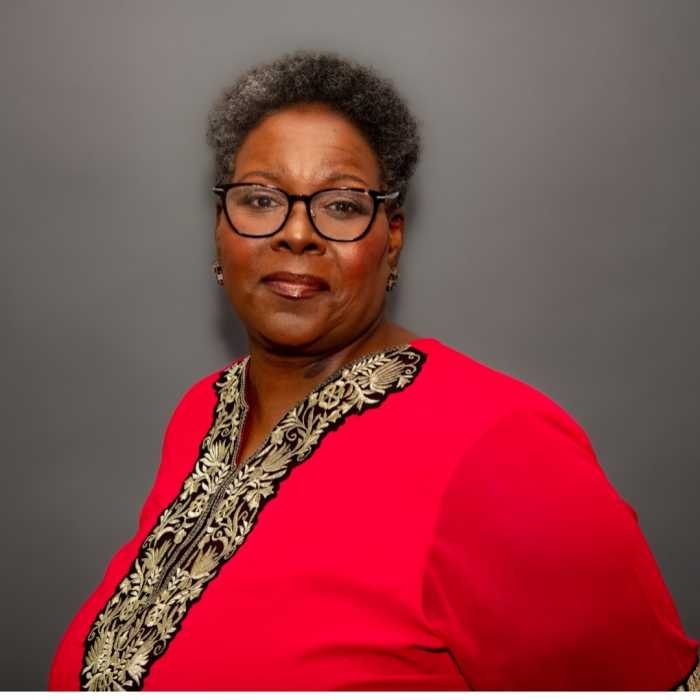
Kimberly Watson
President and CEO, Graham Windham

Kimberly Watson, president and CEO, is the first Black woman to lead Graham Windham, the oldest non-sectarian child and family-focused organization in the U.S. She hails from Brownsville-ENY, attended high school in Edina, Minnesota as “A Better Chance” scholar, and holds degrees from Fordham University and Baruch College. With almost four decades in nonprofit leadership, her passion is partnering with communities to create sustainable solutions and developing the organization to support its children and families.
Was there something or someone that inspired you to pursue a career in the nonprofit sector?
I am motivated by what I went through as a child. Because of my life experiences, I have wanted to influence others who experienced poverty, family violence, and alcoholism, and help families who experience foster care as a result of similar circumstances. I am also inspired by the strong support that my family received from within our community, my educational experiences, and the people at school who made a difference.
What is the proudest moment of your career so far?
I am so proud to lead the deep, difficult, and critically important work of combating anti-Black racism at Graham. One of my proudest achievements has been raising wages over and above what our government contracts cover. Fair and just pay is at the heart of anti-racism work. We are not all the way there but have made significant progress this past year by finding ways to increase pay and provide staff with an 8 percent cost of living adjustment.
What policy changes could be made to aid in your work within the nonprofit sector?
Money answers a matter. That is true for staff AND families. The success of the #JustPay Campaign would enable us and other publicly funded organizations to sustain fair wages for human services workers. Families need cash assistance. The federal Child Tax Credit was proven to address poverty and needs to continue. Additionally, mandated reporter rules should change so that poverty does not lead to child neglect investigations and instead, families get the help they need.
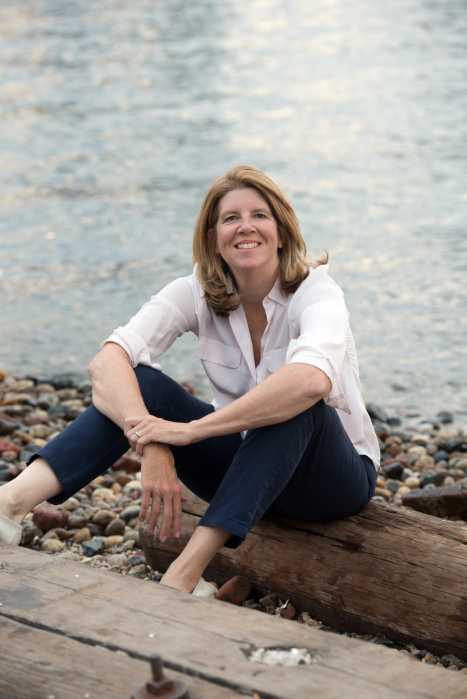
Nancy Webster
Executive Director, Brooklyn Bridge Park Conservancy

Nancy Webster is executive director of the Brooklyn Bridge Park Conservancy, which plays a vital role in creating and energizing this community-focused, world-class urban oasis on the Brooklyn waterfront. The Conservancy brings this unique park space to life with more than 500 innovative and engaging education, arts and culture, and recreation programs each year. With co-author David Shirley, Webster wrote A History of Brooklyn Bridge Park: How a Community Reclaimed and Transformed New York City’s Waterfront, published by Columbia University Press. A graduate of Duke University, Webster is a waterfront enthusiast, and avid angler and sailor.
Was there something or someone that inspired you to pursue a career in the nonprofit sector?
Our waterways inspired me to move from a career in public relations and advertising to the Conservancy. Helping bring people to a transformed Brooklyn waterfront to experience the magnificence of New York Harbor and the East River estuary has been an extraordinarily fulfilling opportunity.
What is the proudest moment of your career so far?
An exciting moment was opening the park’s Environmental Education Center, which features interactive displays and a marine aquarium. The Center serves as the home base of the Conservancy’s robust education programs, which serve school groups and students across the five boroughs. The proudest moment is yet to come: we are currently working on a new, expanded Environmental Education Center that will open in the next few years.
What policy changes could be made to aid in your work within the nonprofit sector?
It’s vital to prioritize our parks and open spaces – they are crucial community gathering places, bring physical and mental health benefits, help combat climate change and make our city cleaner and greener, provide interactive educational opportunities, and provide long-term economic benefits and quality of life enhancement to NYC residents.

Adam Weinstein
President and CEO, Phipps Houses

Adam Weinstein is president and CEO of Phipps Houses and chairman of Phipps Neighborhoods, its social service partner. He joined Phipps Houses in 1989, becoming CEO in 2001, and has led this organization to develop or preserve nearly 10,000 affordable apartments in NYC. Adam is involved as a board member with several civic and policy organizations, most of which relate to affordable housing and economic opportunity. He lives with his family in the beautiful Bronx.
Was there something or someone that inspired you to pursue a career in the nonprofit sector?
At Harvard Business School, I learned important lessons that resonate in our sector and I still hold onto them today. Lessons like service to the customer/client, scale of impact, and stakeholder value (you just have to enlarge your view of the stakeholder).
What is the proudest moment of your career so far?
Creating large downtown “villages” of over 1,000 beautiful, high-amenity affordable apartments in NYC neighborhoods that have not gotten their share, like Far Rockaway, East Tremont, and East NY, replete with integrated resident and community services, career development and education programs of Phipps Neighborhoods.
What policy changes could be made to aid in your work within the nonprofit sector?
In high-demand places like NYC, creating more affordable housing is critical. Creating housing at all income levels is important, but none more so than at lower income levels. That requires subsidized capital at the federal, state, and city levels. Removing barriers to housing creation and making it easier for homeless and lower-income New Yorkers to get affordable housing is essential. We need to end the bureaucratic maze for affordable housing seekers and providers alike.
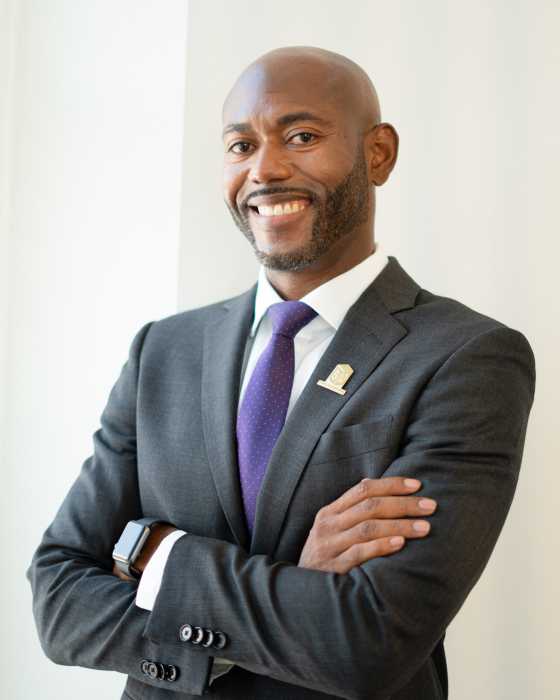
Andre White
Executive Director and CEO, Phipps Neighborhoods

Andre D. White is the executive director and CEO of Phipps Neighborhoods. Andre has been recognized as a national leader in the field of youth employment and has nearly two decades of public service, experience and accomplishments in this role. He previously served as deputy commissioner of Youth Workforce Development at the NYC Department of Youth and Community Development. Andre has served on numerous citywide task forces and serves on the board of several organizations.
Was there something or someone that inspired you to pursue a career in the nonprofit sector?
Growing up in rural Jamaica, I was profoundly impacted by the unwavering support of my community. Their dedication to my dreams and support in accessing educational opportunities ignited my passion to offer the same access to the youth in New York City. My transformative journey inspires my commitment to empowering the next generation in NYC, ensuring they have the tools and opportunities to thrive.
What is the proudest moment of your career so far?
Revamping NYC’s Advance and Earn program to empower vulnerable youth is a career highlight. Yet, my transition to Phipps Neighborhoods during the pandemic stands out. We provide vital aid — ensuring families have access to food and health care while bridging the digital divide, and we launched a new career track in the building services/construction sector for the most impacted adults. These initiatives epitomize our commitment to empowering vulnerable New Yorkers, a source of immense pride in my career.
What policy changes could be made to aid in your work within the nonprofit sector?
It is critical that we emphasize investments in affordable housing as the bedrock for stability and upward mobility in NYC. Coupled with this, we must safeguard and augment funding for career and education programs. Public-private partnerships are key to amplifying this work, along with cultivating collaborations between affordable housing entities and local nonprofits, mirroring Phipps’ holistic model. This integrated approach establishes a robust foundation for our most vulnerable New Yorkers.
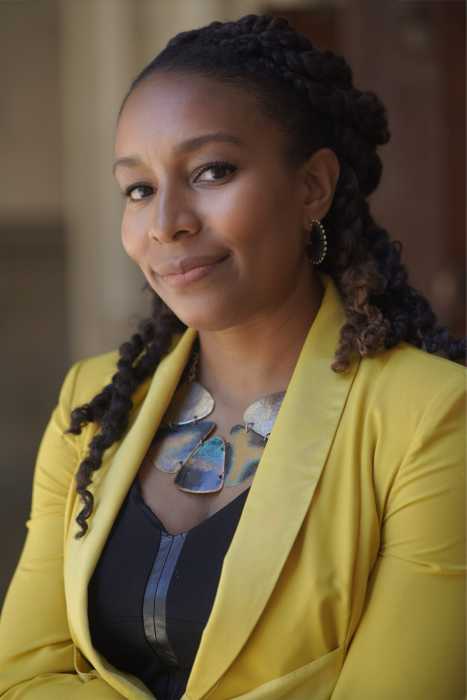
Barika Williams
Executive Director, Association for Neighborhood & Housing Development

Barika X. Williams is head of the Association for Neighborhood & Housing Development (ANHD), one of NYC’s longest-running advocacy associations focused on ensuring affordable housing and economic justice for all New Yorkers. She is a leader in community development for marginalized communities that advance racial justice. Barika was appointed to the U.S. Treasury’s Advisory Committee on Racial Equity and previously served as assistant secretary for housing for the State, published at the Urban Institute, and spearheaded one of Washington D.C.’s inaugural community-control housing projects.
Was there something or someone that inspired you to pursue a career in the nonprofit sector?
I’ve pursued that in a variety of professional sectors but found my way to the nonprofit sector because I was looking for a way to advance transformational shifts for communities of color. I wanted to work with and for the people and communities that are too often silenced and ignored. At ANHD, I’m not isolated from those most impacted; I get to be a part of building a movement for transformative change.
What is the proudest moment of your career so far?
A stand-out moment in my career was when I led the policy analysis and development of what is now NYC’s Mandatory Inclusionary Housing (MIH) program, including bringing the nation’s top researchers and practitioners to inform the best policy direction for NYC. Despite all that work, what Mayor de Blasio enacted is not at all what we wanted or what our communities needed. But the campaign exemplified the collective work of grassroots organizing, policy, development, and government.
What policy changes could be made to aid in your work within the nonprofit sector?
The conversation on undoing long-standing inequities in planning and development is finally finding an audience with leadership and decision-makers. We need comprehensive planning to equitably shape and decide what gets built where. Recent polls show that New Yorkers want more community-controlled and mission-driven housing developers — no more unaffordable profit-driven development. Our housing policies must protect our marginalized tenants and homeowners and ensure pathways to stability and wealth-building.
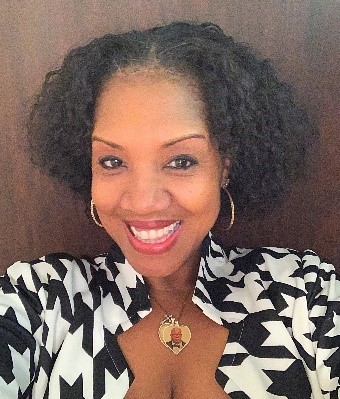
Darlene Williams
President and CEO, Union Settlement

Dr. Darlene Williams is a visionary and transformational executive leader with a strong commitment to service and empowerment for under-resourced communities, equity, and social injustice. Dr. Williams’ three decades of executive leadership experience provides her with insight into the needs of nonprofit organizations and their integral role in the community.
Was there something or someone that inspired you to pursue a career in the nonprofit sector?
My father grew up in a very poor family in Alabama, and then he came to New York City after graduating from high school to make a better life for his family. My mother, who grew up on a farm, tended to the farm and took care of her brothers and sisters and the community, really serving and giving food from her farm to people in Greenville, Alabama. Both of them were public servants
What is the proudest moment of your career so far?
Any impact we can make on the lives of individuals is a proud moment, but I must say that one in particular was the day I helped one of my clients in a shelter move out to her own place with her children. The family were survivors of domestic violence and they were in shelter for 10 years. The day they finally were able to move was nothing short of inspirational
What policy changes could be made to aid in your work within the nonprofit sector?
We need to pay our human services staff a fair and equitable wage. Human services workers are some of the most dedicated workers in the sector. They do this work because they love to serve. We need to pay the employees at the same level as their compassion to the community





